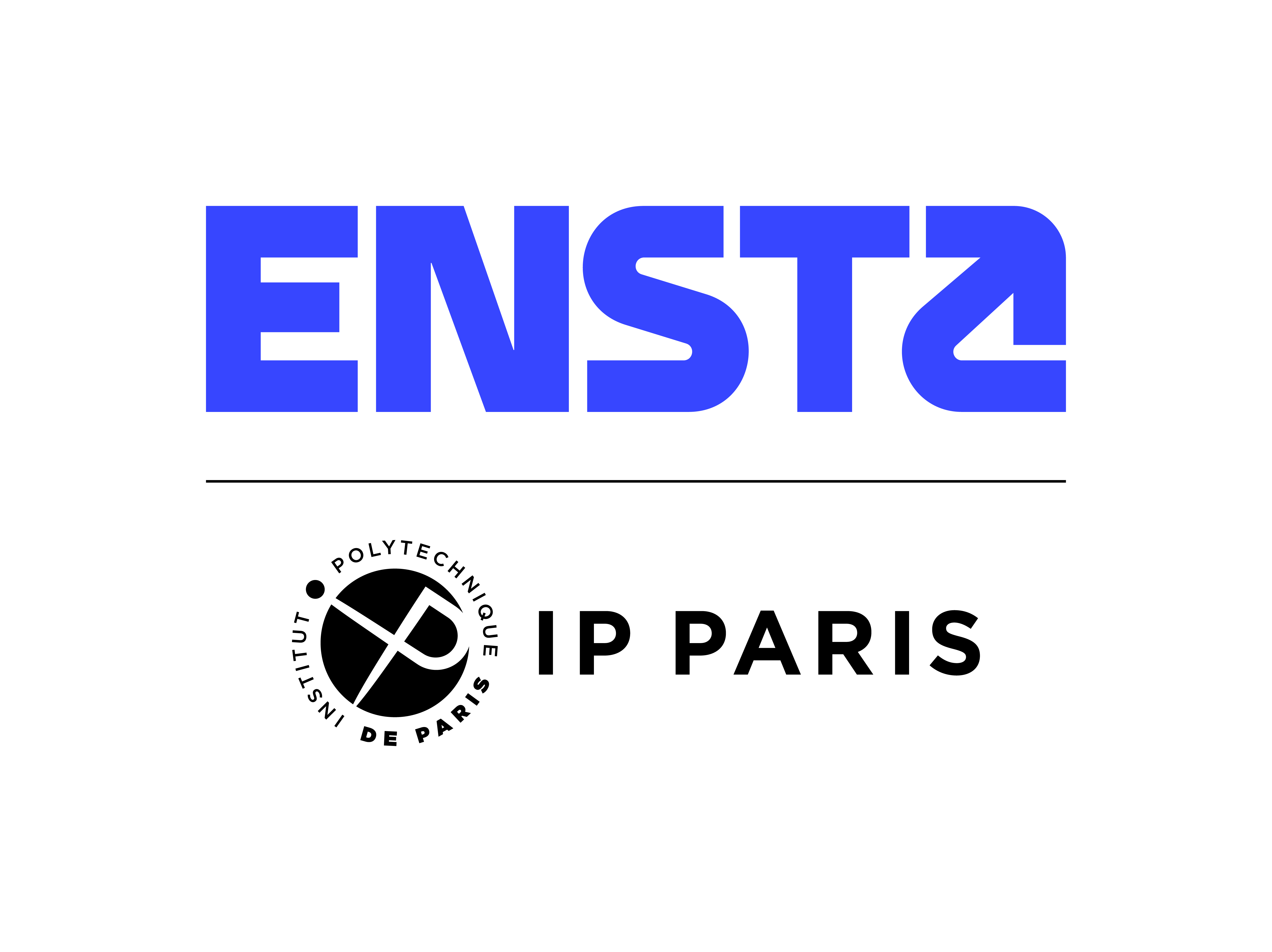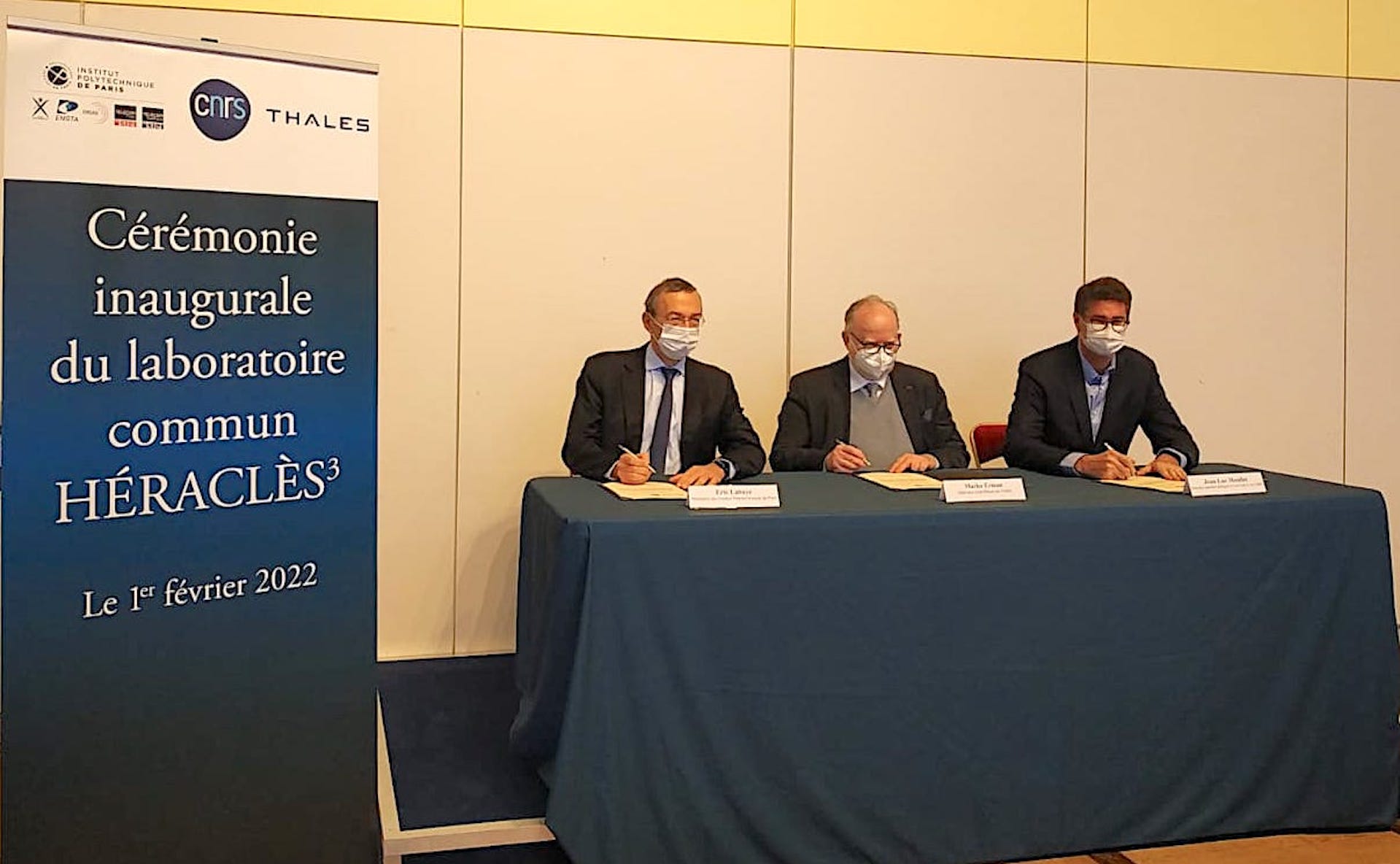The partnership was signed on the IP Paris campus by Eric Labaye, President of Institut Polytechnique de Paris and École Polytechnique, Jean-Luc Moullet, Deputy Director General for Innovation at the French National Centre for Scientific Research (CNRS), and Marko Erman, Scientific Director at Thales.
It highlights the common interests of the three players for power lasers, one of the major research areas of IP Paris and CNRS. These laser technologies and associated applications are also in line with Thales's strategy, a world leader in the field of scientific lasers which focuses its laser activities on three sectors: space, science and industry.
Several collaborations have emerged from these common interests, such as the XCAN project conceived by conceived by Gérard Mourou (winner of the Nobel Prize in Physics and Professor Emeritus at École polytechnique), and some of the R&D for the Apollon research infrastructure installed at the LULI* (intense laser laboratory) to operate some of the world’s most powerful lasers, and more recently the Laplace laser plasma acceleration project led by the LOA** (applied optics laboratory).
HERACLES³ will make it possible to develop the innovative technological building bricks needed to increase laser source reliability and performance, particularly in terms of power, intensity and repeatability. Potential applications include electron acceleration with a new class of accelerators, very high-resolution medical imaging and non-destructive testing of thick-welded structural materials.
Thales’s contribution to the project will include making its experts available, financing doctoral theses under industrial research-based training (CIFRE) agreements, equipment loans, and the provision of a new laser for the Laplace project, which aims to become one of the world’s leading centres for laser-plasma acceleration.



